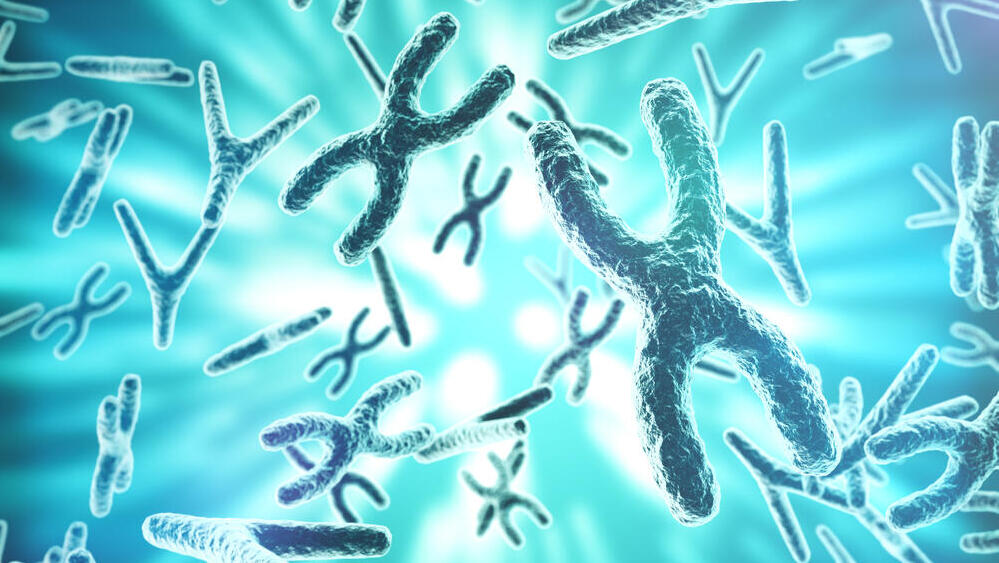Getting your Trinity Audio player ready...
Algerian boxer Imane Khelif's victory over her Italian opponent at the Paris 2024 Olympics last week brought the issue of gender conformity among Olympic athletes into the spotlight, sparking considerable controversy regarding Olympic boxers whose gender identity is disputed.
Amid this, numerous voices from the boxing world have argued that Khelif, who will fight for an Olympic gold medal on Friday, should not have been allowed to compete in the women's category. This is because a testosterone test she did last year, ahead of the World Championships, showed elevated levels, which disqualified her from that competition.
International Boxing Association (IBA) President Umar Kremlev claimed that, after a series of DNA tests, the association "uncovered athletes who tried to deceive their peers by posing as women."
According to him, the tests "proved they had XY chromosomes, and thus were excluded from sporting events." Conversely, the Algerian Olympic Committee condemned the attacks on their boxer, asserting she meets all the criteria for Olympic participation as a woman.
While Olympic committees and international organizations are required to reevaluate protocols concerning equality and creating the fairest competition possible, Professor Lina Basel Salmon, director of the Genetics Institute at Rabin Medical Center, explained the phenomenon's scientific details.
"By the sixth week of a pregnancy, an embryo begins to develop into a male or female," she explained. "Typically, males and females have 22 identical pairs of chromosomes, with the 23rd pair determining the embryo's sex. Females have two X chromosomes, while males have an X and a Y chromosome."
According to Basel Salmon, there are several syndromes related to developmental disorders in males and females that can result in a situation where a baby is born with female characteristics even with a Y chromosome present.
The general name for this group of syndromes is Disorders of Sexual Development (DSD), which can be caused by changes in various genes. One of the more common conditions of having a Y chromosome in a woman is Androgen Insensitivity Syndrome (AIS), a medical condition occurring in about 1 in 20,000 births.
"The condition causes a genetic change in the gene encoding the androgen receptor," she explained. "This causes the body, despite having high testosterone levels, not to respond to its effects due to the genetic change in the receptor. Testosterone can't function properly, so male sexual characteristics don't develop."
How is this discovered?
"When a female is born, we wouldn't know she has a Y chromosome unless, for example, the mother had an amniocentesis test. This can reveal a mismatch between the expected sex based on chromosomes and the baby's gender," Basel Salmon explained.
"If no amniocentesis was done, the issue becomes apparent at the onset of puberty, with the absence of normal sexual development. There might be signs of sexual development, but menstruation doesn't occur," she added.
"Sometimes women seek DSD tests when fertility issues arise, as many of these syndromes result in infertility due to the absence of a uterus or ovaries. Hormonal treatment is needed to aid sexual development. I recall a case in our clinic of a family with three daughters, all of whom discovered they have a Y chromosome."
In cases where the syndrome is suspected, Basel Salmon noted the first step is to perform a karyotype test conducted in genetic laboratories. "This test counts the chromosomal composition under a microscope - checking for the presence of 44 autosomes in both males and females, as well as XX chromosomes in females and XY chromosomes in males."
If a karyotype test reveals that a female has a Y chromosome, further specific genetic tests are conducted. "These genetic changes can be detected by 'genetic sequencing' tests," she added. "There are over 900 different genetic changes in the gene that encodes the androgen receptor that can cause this issue."
The condition can be hereditary, but not exclusively so. "This change can be hereditary, sometimes manifesting over several generations within a family, with a mother who's a healthy carrier of the genetic change which doesn't affect her. The shift, however, can also occur spontaneously and is unrelated to its heredity," Basel Salmon stressed.
"It results from an error in the replication of genetic material: When the body develops, cells need to multiply and replicate themselves, but sometimes an error occurs during replication, and due to this genetic change the receptor loses its ability to respond to testosterone," she added.
"Despite external female characteristics, if internal organs are examined, no uterus or ovaries are present, but there's testicular tissue that can sometimes be hidden within the abdomen."
She explained that the condition requires high sensitivity. "It's challenging to determine at birth whether a baby is male or female because there can be intermediate states. In these cases, an early decision on how to raise the child, whether as a boy or a girl, is necessary."
"It requires the expertise of multiple specialists to make such decisions, as they aren't always clear-cut," she added. "Therefore, experts such as endocrinologists, urologists, geneticists and others, are involved."
In addition, Basel Salmon mentioned there are milder forms of AIS that lead to intermediate physical states between males and females. "There can also be cases where only partial response to testosterone is seen," she explained.
"Further, there are other syndromes besides those related to the androgen receptor. Other genes can affect male development, such as the 'SRY' gene and genes that encode enzymes responsible for hormonal balance," she explained
How does this pertain to the Olympic games?
"There are many discussions about whether excess testosterone provides any advantage in sports for a woman with a Y chromosome, and there are no definitive answers regarding different medical conditions.
"The effect of hormones depends on the precise diagnosis, i.e., which specific gene is involved, the specific genetic change and the receptor's activity: If the hormone level is high, but the receptor is inactive, the effects of the male hormones don't produce the intended results, and then both testosterone levels and receptor response should be considered," she said.
"The problem is that it's very challenging to objectively assess the receptor's ability to respond to testosterone accurately, making this field highly complex and controversial."
The Italian athlete Khelif defeated complained about the match being unfair. Do you consider this cheating?
"It certainly isn't cheating. Sports organizations have rules about which genetic conditions allow participation in certain categories. They consider many variables: testosterone levels, receptor activity, precise diagnosis and others.
"However, it isn't certain that the rules are adapted to every genetic or non-genetic condition, and in my opinion, more discussions and further consideration are needed due to the complexity and multitude of diagnoses in this field," she said.
Do you think Khelif should have been allowed to compete?
"In my personal opinion, the rules set for different genetic conditions should be adhered to. As long as her condition fits a particular established rule, there's no reason she shouldn't compete. This is a matter for the Olympic and other sports committees to decide."








